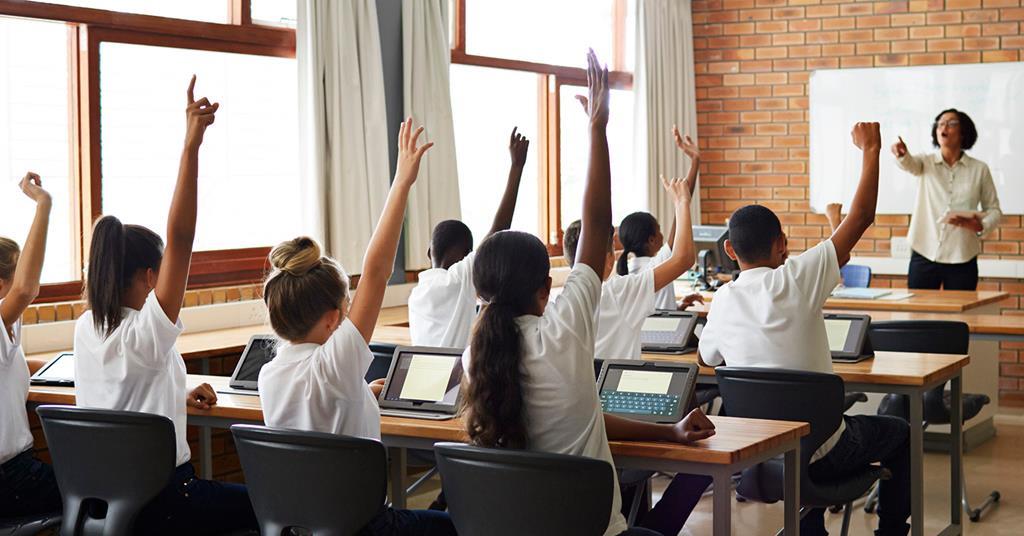Primary Science Tuition Singapore for Building Confidence in Science
Primary Science Tuition Singapore for Building Confidence in Science
Blog Article
Discover the Crucial Advantages of Understanding Primary Scientific Research for Young Students
The importance of main science education and learning for young students expands much beyond plain expertise acquisition; it offers as an essential pillar in creating necessary skills such as critical thinking, analytic, and imagination. Engaging with clinical concepts through interactive and inquiry-based activities not only cultivates inquisitiveness however additionally lays the groundwork for resistant, positive learners.
Enhancing Critical Assuming Abilities
Promoting critical thinking skills in young students is necessary for their cognitive advancement and future scholastic success. Crucial thinking enables youngsters to assess details, review proof, and make informed choices, which are crucial skills in today's information-rich culture. By involving in scientific questions, young students can boost these skills as they explore concepts with monitoring, thinking, and experimentation.
In primary scientific research education, educators can assist in vital thinking by urging trainees to ask concerns, formulate theories, and conduct experiments. This hands-on method allows children to exercise analytic and establish logical thinking abilities. For instance, when students explore the residential or commercial properties of products or the principles of activity, they find out to analyze their findings seriously and reason based upon proof.
In addition, conversations and joint tasks can advertise important thinking by giving chances for students to verbalize their ideas, difficulty presumptions, and consider varied perspectives. By developing an encouraging atmosphere that values questions and representation, educators can support critical believing abilities that equip young learners to come to be lifelong students and independent thinkers. Eventually, improving these abilities lays a durable structure for their future scholastic ventures and individual growth.
Cultivating Curiosity and Expedition

Main science education and learning supplies an organized environment where young learners can discover various phenomena through hands-on experiments and observations. By enabling them to communicate with products and involve in inquiry-based discovering, teachers create chances for youngsters to create theories, test their concepts, and attract verdicts. Such experiences support a sense of wonder and excitement about science.

Building Confidence in Issue Resolving
Structure confidence in analytic is a vital component of key science education that equips young students to come close to difficulties with durability and imagination - primary science tuition Singapore. They create important abilities in critical thinking and analysis when youngsters are motivated to involve with scientific concepts through hands-on tasks and inquiry-based discovering. This procedure not just improves their understanding of scientific principles however additionally cultivates a sense of possession over their understanding
To develop self-confidence, teachers must develop a supportive atmosphere where errors are seen as opportunities for development instead than failings. This encourages pupils to take risks and discover various remedies to issues. By providing scaffolding and advice, teachers can help pupils navigate complex jobs, slowly raising their self-reliance in analytic circumstances.
Moreover, collective learning experiences, such as group projects or experiments, can further enhance pupils' self-confidence as they learn to articulate their thoughts and listen to others' perspectives. These communications nurture social skills and enhance the concept that analytical is usually a collective venture. Inevitably, cultivating confidence in analytical prepares young students for future scholastic challenges and equips them with the devices necessary for lifelong learning.
Encouraging Creative Thinking and Innovation
In the realm of key scientific research education and learning, encouraging creative thinking and innovation is crucial for cultivating a dynamic understanding setting. By promoting a culture where young learners can explore ideas and experiment easily, teachers aid pupils develop essential assuming skills and an enthusiasm for discovery. Imagination in scientific research encourages children great site to ask questions, devise theories, and participate in hands-on tasks that stimulate their creativity.
Integrating open-ended projects and inquiry-based discovering right into the curriculum allows pupils to share their unique perspectives and options. For circumstances, when tasked with resolving a problem pertaining to their atmosphere, trainees can brainstorm several approaches, look at this site resulting in innovative results that display their originality. This not just deepens their understanding of clinical ideas yet additionally imparts a feeling of possession over their knowing procedure.
In addition, innovative scientific research education nurtures collaboration among peers, as trainees typically share ideas and improve one an additional's insights - primary science tuition Singapore. This collaborative spirit promotes not only advancement however likewise essential social abilities. Hence, by prioritizing imagination and technology in key scientific research education and learning, we encourage young learners to think critically, embrace challenges, and picture possibilities, laying a strong foundation for long-lasting knowing and exploration
Preparing for Future Learning Challenges
Young learners' capacity to navigate future discovering challenges rests on a strong foundation in primary scientific research education and learning. This foundational understanding furnishes pupils with essential believing abilities and an organized technique to analytic, vital for tackling complicated problems in an ever-evolving globe. Main scientific research fosters inquiry-based understanding, encouraging pupils to ask inquiries, discover theories, and involve in hands-on experiments.
As they establish these skills, learners become adept at evaluating data, identifying patterns, and attracting educated verdicts. Such expertises are vital not just in scientific areas however likewise in innovation, mathematics, and design (STEM), where interdisciplinary knowledge is increasingly important.
Furthermore, main science education and learning cultivates a feeling of inquisitiveness and resilience in young here students, allowing them to see challenges as chances for development. As they experience and get over challenges in their scientific expeditions, they construct self-confidence in their capacity to introduce and adjust.
Inevitably, a strong foundation in primary science not just prepares young learners for scholastic quests however additionally equips them with the devices necessary for lifelong understanding and flexibility in a quickly altering global landscape. By investing in primary scientific research education, we are buying the future possibility of our learners.
Final Thought
Understanding main science is vital for young students, as it fosters essential reasoning, curiosity, and creative thinking. Eventually, the advantages of primary science education prepare youngsters for future academic searches and instill long-lasting discovering behaviors vital for prospering in an ever-evolving globe.
The significance of main scientific research education and learning for young learners prolongs much past plain expertise procurement; it serves as a fundamental column in developing vital skills such as crucial reasoning, analytic, and creative thinking. By developing a helpful setting that values inquiry and representation, educators can support vital believing abilities that empower young students to come to be lifelong students and independent thinkers. Hence, by prioritizing creative thinking and development in primary scientific research education and learning, we equip young students to believe critically, embrace obstacles, and picture opportunities, laying a solid structure for long-lasting learning and expedition.
Young learners' capability to browse future discovering difficulties hinges on a solid structure in primary science education.Comprehending primary science is vital for young learners, as it fosters crucial reasoning, inquisitiveness, and creativity.
Report this page